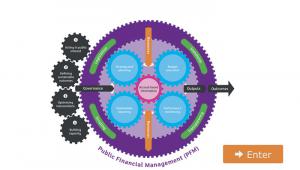With the Conservatives and Labour enjoying the biggest combined share of the vote since 1970, it looks like, for now, the two-party system is back. A government majority is set to be determined more by the gap between parties than the absolute share of the vote. Vote shares of 42% (Tories) and 40% (Labour) often mean a healthy majority. Tony Blair’s third-term majority of 60 was achieved with just a 35% share of the vote, but there can be no majority when there is just a 2% gap in a two-horse race.
Only three premiers have won landslides in the past 70 years. Each time, the loser was no match for the winner, whereas Theresa May and Jeremy Corbyn were in the end very much an electoral match for each other and the voters did not overwhelmingly commit to either. In a reference to ordering East End pie and mash with its famous parsley sauce, my 88-year-old mum gloriously summed up the contenders for the top job as “two o’ eels in need of liquor”.
So, what now? Well, other than Brexit, probably not a lot.
On Brexit, the government will most likely compromise on its stance, and give greater attention to the economic consequences of no deal. The public does not want another referendum, and Brenda from Bristol among many does not want another election. However, the public has not endorsed any one party on its Brexit stance. Without compromise, we are both divided and stuck.
The election result is a sign that the public mood has changed and austerity may have run its course. Instead there will simply be no money, and many people think services need more resources rather than more reform. I suspect costs will rise as a pay cap is harder to enforce with prices rising by 2.9% and emboldened unions questioning wage austerity.
In this context, public sector bodies need good leadership and sound financial management more than ever. To achieve this, CIPFA thinks the UK needs:
⦁ More transparent government financial management, with decisions based on independent, evidence-based assessments
⦁ An understanding of the risks and opportunities to the public sector from Brexit negotiations
⦁ Urgent, cross-party action to put health and social care on a sustainable footing that will last over several parliaments
⦁ Deliverable affordable housing and financial solutions that support economic growth; build far more council homes if that’s the quickest way to change supply and demand imbalances and force improvements to the private rented sector
⦁ Greater fiscal devolution away from Westminster to improve systems thinking across highly rationed resources
⦁ Give powers to mayors and combined authorities to develop 14-19 skills strategies to tackle post-Brexit workforce shortages that schools alone cannot tackle.
As a profession working in public and not-for-profit services, we give opinions on not only the choices organisations make but also how they should be considered in the public interest based on evidence. We often see more heat than light on national and local decisions, so we must have the confidence to speak truth to power.
I cannot foretell the timing of the next election, the Brexit outcome or who is our next prime minister. But I can say with certainty that we have dropped from the top to the bottom for G7 growth in a year, and inflation has jumped 0.2% this quarter. So hold on, it’s going to get bumpy, and you all need to be leaders.




















